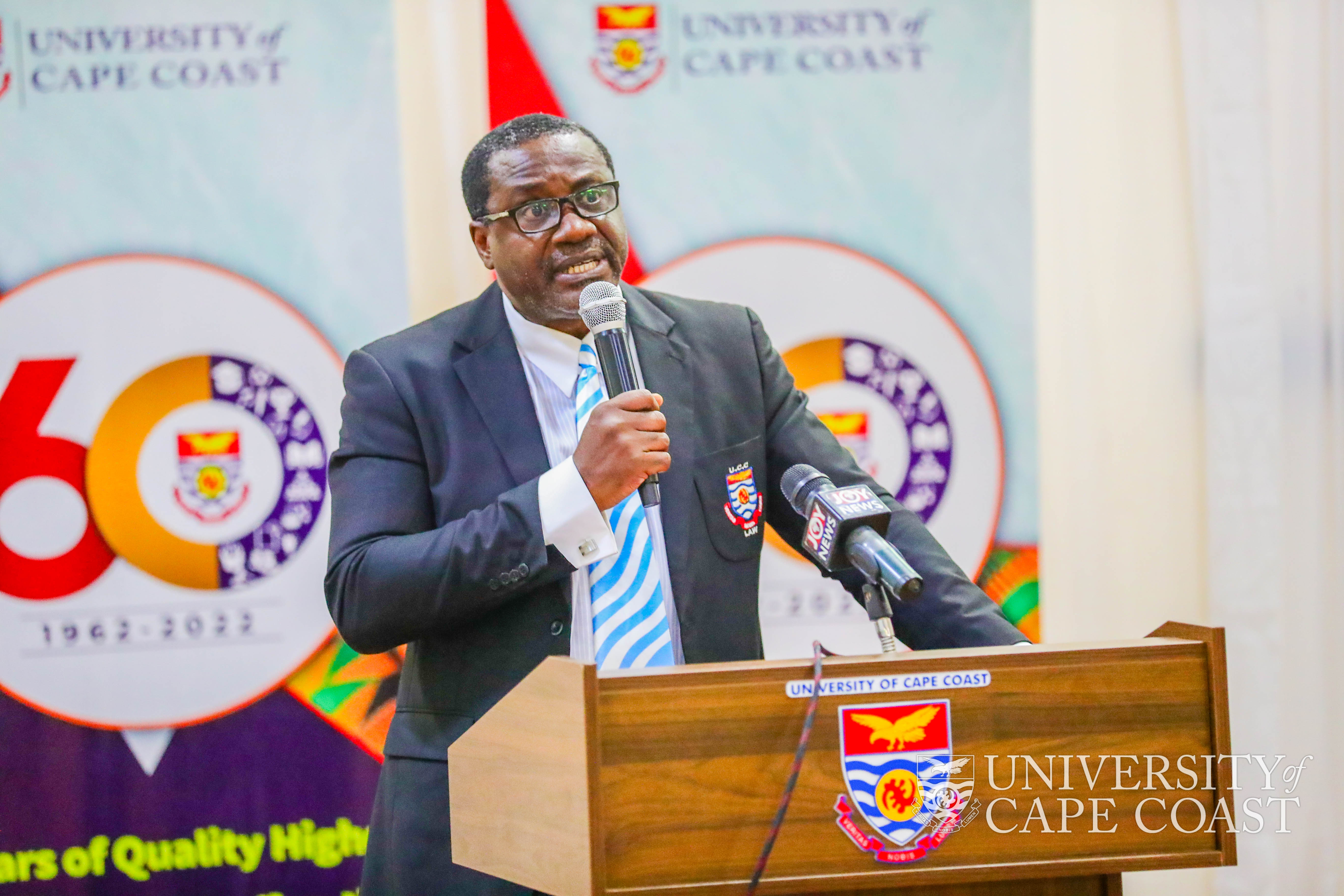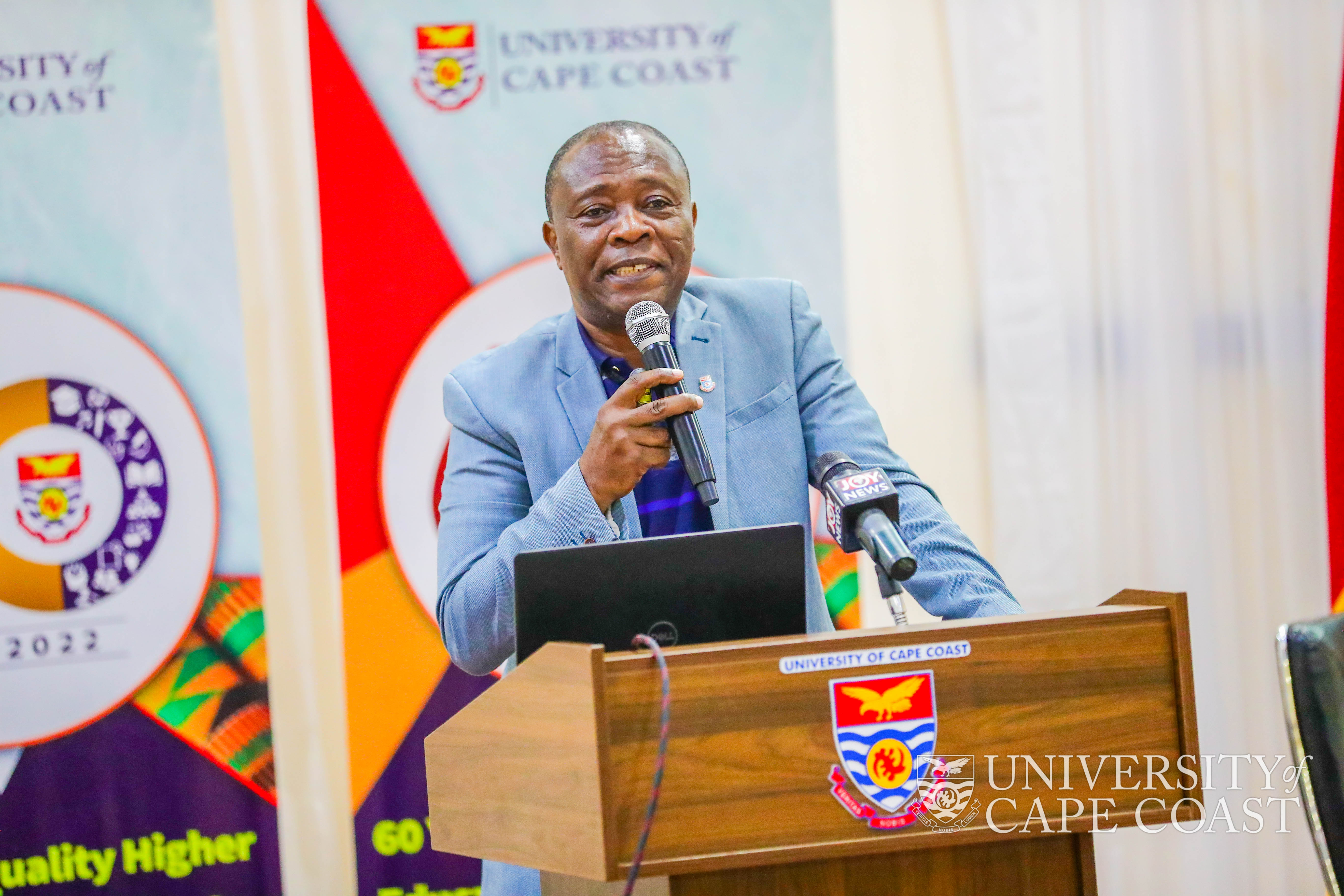Panelists at an Expert Forum have advised government to reconsider its decision to wean public universities off its payroll since such a move would take a toll on tertiary education in the country.
The Panelists included the Founding and immediate past Dean of the Faculty of Law at University of Cape Coast (UCC), Prof. Philip Ebow Bondzi-Simpson; a former Pro Vice- Chancellor of UCC, Prof. George K. T. Oduro, and the Director-General of IEPA-UNESCO Category II Centre, UCC, Dr. Michael Boakye-Yiadom.
They expressed the views at an Expert Forum organised by the UCC branch of the University Teachers Association of Ghana (UTAG-UCC) on the theme: “Weaning Public Universities from Government of Ghana Payroll: Implications for Tertiary Education”.
The event formed part of activities heralding the grand durbar of UCC’s sixtieth (60th) anniversary celebration.
In March, this year, the Finance Minister, Ken Ofori-Atta, disclosed that public tertiary institutions in the country would be weaned-off government’s payroll. The move, according to the minister, formed part of government’s medium-term measures to address the challenges confronting the economy.
However, according to the experts, the transitioning of public universities on to government’s payroll could come with some untoward challenges to tertiary education in Ghana.
Reduce the Tertiary Intake
Founding and immediate past Dean of the Faculty of Law-UCC, Prof. Philip Ebow Bondzi-Simpson
Prof. Bondzi-Simpson, who treated the topic: "Preparedness of Universities in Ghana" posited that such a measure by government would drastically affect enrolment rate of students in higher education, as students who were covered by government's subvention would pay realistic fees.
According to him, the wean-off would make students patronise only required driven academic programmes to the detriment of "useful but not necessary demand driven programmes."
"Philosophy, Ghanaian language, Classics, Linguistics and the likes, you will get few people doing it and therefore, if education is to be treated for public good it will result in different imperatives” Prof. Bondzi-Simpson said in his remarks.
He noted that the move would also affect capital projects of universities and there would be untold pressure on the internally generated funds of public universities.
The former Dean was of the view that government should provide stakeholders with the road map of how it was weaning public universities off the payroll before carrying out the policy implementation.
"If public universities are to be weaned off the payroll, what are the processes and procedures in place? What are the action points, and what are the timelines. Unless and until a roadmap is put in place that we can all see and interrogate, no one can say we are prepared” he concluded.
Limit Access to Higher Education
Former Pro Vice- Chancellor of UCC, Prof. George K. T. Oduro
Taking his turn to address the forum on the topic: "Accessibility Impact Assessment," Prof. Oduro stated that the wean off would have ripple effects on students' access to acquire quality tertiary education.
Currently, he said, universities were facing daunting challenges regarding self-funded projects despite benefiting from government's subvention, saying weaning them off completely would be counter-productive.
"...But if there is weaning off, it means that the universities will have to rethink how the money will be used. That will affect investment in infrastructure" he added.
While calling on it to adopt targeted poor-people focus approach to policy implementations, Prof. Oduro told government to recognise "Public university education as public good and prioritise its budgetary support to payment of salaries. Shifting the universities from the payroll, monies could be saved to sustain government payroll responsibilities towards teaching and non- teaching staff."
Funding Gap
Director-General of IEPA-UNESCO Category II Centre, UCC, Dr. Michael Boakye-Yiadom (speaking)
For his part, Dr. Michael Boakye-Yiadom, speaking on the topic: "Alternative Policy and Lessons from Peer Institutions Globally" admitted that stakeholders should come together to brainstorm on filling the funding gap that the policy would create before government rushes to implement it.
"If we are successful in filling this funding gap, then we can say confidently…we want to begin to look at gradually weaning ourselves off government payroll" he noted.
Globally, he stressed, government funding of public universities was reducing and called on public universities to enhance their internally revenue mobilisation drive with innovative ways to rake in from alumni contributions, tuition and endowment funds to support their activities.
Dr. Boakye-Yiadom was quick to add that if public universities would take advantage of alumni contributions and endowment funds to generate domestic revenue then "I believe that weaning public universities off government payroll is possible only if we commit to making it happen".
The Vice- Chancellor, Prof. Johnson Nyarko Boampong, chaired the forum, which was held at the School of Medical Sciences of University of Cape Coast.
Source: Documentation and Information Section-UCC




